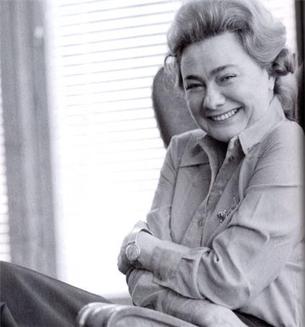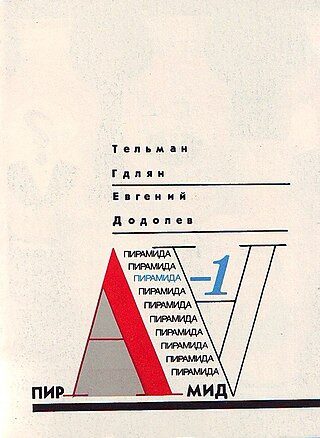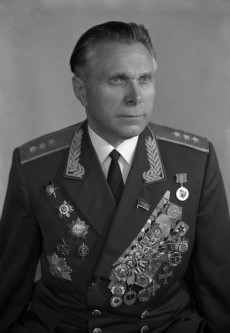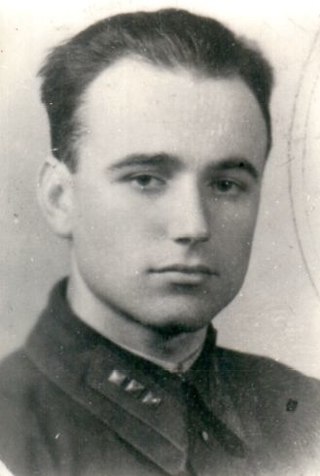
Yuri Vladimirovich Andropov was a Soviet politician who was the sixth leader of the Soviet Union and the fourth General Secretary of the Communist Party of the Soviet Union, taking office in late 1982 and serving until his death in 1984.

Leonid Ilyich Brezhnev was a Soviet politician who served as General Secretary of the Communist Party of the Soviet Union from 1964 until his death in 1982, and Chairman of the Presidium of the Supreme Soviet from 1960 to 1964 and again from 1977 to 1982. His 18-year term as General Secretary was second only to Joseph Stalin's in duration.

An index of articles related to the former nation known as the Soviet Union. It covers the Soviet revolutionary period until the dissolution of the Soviet Union. This list includes topics, events, persons and other items of national significance within the Soviet Union. It does not include places within the Soviet Union, unless the place is associated with an event of national significance. This index also does not contain items related to Soviet Military History.

Nikolai Aleksandrovich Tikhonov was a Soviet Russian-Ukrainian statesman during the Cold War. He served as Chairman of the Council of Ministers from 1980 to 1985, and as a First Deputy Chairman of the Council of Ministers, literally First Vice Premier, from 1976 to 1980. Tikhonov was responsible for the cultural and economic administration of the Soviet Union during the late era of stagnation. He was replaced as Chairman of the Council of Ministers in 1985 by Nikolai Ryzhkov. In the same year, he lost his seat in the Politburo; however, he retained his seat in the Central Committee until 1989.

Gennady Ivanovich Yanayev was a Soviet politician and disputed President of the Soviet Union for three days. Yanayev's political career spanned the rules of Khrushchev, Brezhnev, Andropov and Chernenko, and culminated during the Gorbachev years. Yanayev was born in Perevoz, Gorky Oblast. After years in local politics, he rose to prominence as Chairman of the All-Union Central Council of Trade Unions, but he also held other lesser posts such as deputy of the Union of Soviet Societies for Friendship and Cultural Relations with Foreign Countries.

Galina Leonidovna Brezhneva was the daughter of Soviet politician and longtime General Secretary Leonid Brezhnev and Viktoria Brezhneva.
Brezhnev (masculine) or Brezhneva (feminine) is a Russian and Ukrainian surname.

The Pyramid (1990) is a thriller novel by Soviet special investigator and deputy of Soviet Parliament Telman Gdlyan and professional writer Evgeny Dodolev, about Soviet Mafia. It is the first Soviet book about corruption. The book allegedly exposed ties between Leonid Brezhnev's family, Sharof Rashidov and the Soviet Mafia.
Yuri Mikhailovich Churbanov was a Soviet politician and the son-in-law of longtime General Secretary Leonid Brezhnev.

Viktoria Petrovna Brezhneva was the wife of Soviet politician and longtime General Secretary Leonid Brezhnev. She was the mother of Yuri Brezhnev and Galina Brezhneva.

On 10 November 1982, Leonid Ilyich Brezhnev, the third General Secretary of the Communist Party of the Soviet Union (CPSU) and the fifth leader of the Soviet Union, died at the age of 75 after suffering heart failure following years of serious ailments. His death was officially acknowledged on 11 November simultaneously by Soviet radio and television. Brezhnev was given a state funeral after three full days of national mourning, then buried in an individual tomb on Red Square at the Kremlin Wall Necropolis. Yuri Andropov, Brezhnev's eventual successor as general secretary, was chairman of the committee in charge of managing Brezhnev's funeral, held on 15 November 1982, five days after his death.
The full understanding of the history of the late Soviet Union and of its successor, the Russian Federation, requires the assessment of the legacy of Leonid Brezhnev, the third General Secretary of the Central Committee of the Communist Party of the Soviet Union (CPSU) and twice Chairman of the Presidium of the Supreme Soviet. Leonid Brezhnev was the leader of the CPSU from 1964 until his death in 1982, whose eighteen-year tenure has been recognized for developing the most powerful military, and for social and economic stagnation in the late Soviet Union.

The Communist Party of the Russian Federation is a communist political party in Russia that officially adheres to Marxist–Leninist philosophy. It is the second-largest political party in Russia after United Russia. The youth organisation of the party is the Leninist Young Communist League.

Nikolai Anisimovich Shchelokov was a Soviet statesman and army general who served sixteen years as minister of internal affairs from 17 September 1966 to 17 December 1982. He was fired from all posts on corruption charges and committed suicide on 13 December 1984.

Brezhnev is a 2005 biographical TV movie about Soviet leader Leonid Brezhnev. It originally aired in four parts on Russia's Channel One.

The Russian Party of Freedom and Justice is a political party in Russia established and registered in 2012 as Communist Party of Social Justice.

Konstantin Fedorovich Katushev was a Soviet party official and statesman, Secretary of the Central Committee of the Communist Party of the Soviet Union (1968–77), Deputy Chairman of the Council of Ministers of the Soviet Union (1977–82), Chairman of the State Committee of the Soviet Union for Foreign Economic Relations (1985–88), Minister of Foreign Economic Relations of the Soviet Union (1988–91).

Semyon Kuzmich Tsvigun was a Soviet officer of the KGB whose sudden and unexplained death heralded a major shift in Kremlin power politics.

The Communists of Petersburg and the Leningrad Oblast is an interregional public organization that was founded on April 12, 2003. Officially to the system of the Rosreestr on November 24, 2003. The basis of the organization "Communists of Petersburg" in 2003, the branch of communist youth St. Petersburg branch of communist youth, as well as members of regional CPRF committees from some districts of St. Petersburg.
The following lists events that happened during 1966 in the Union of Soviet Socialist Republics.

















